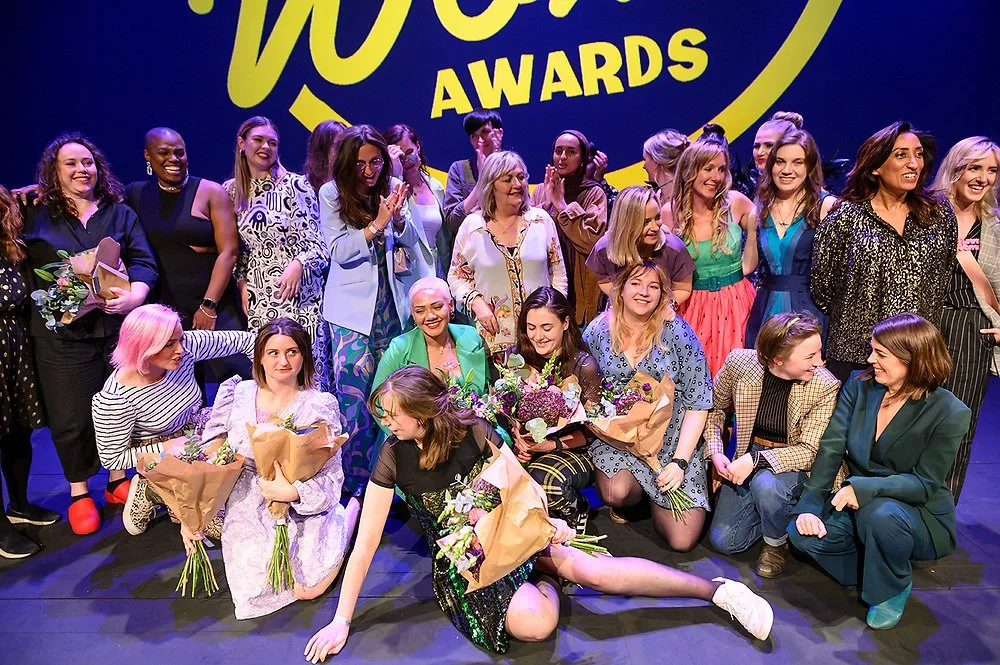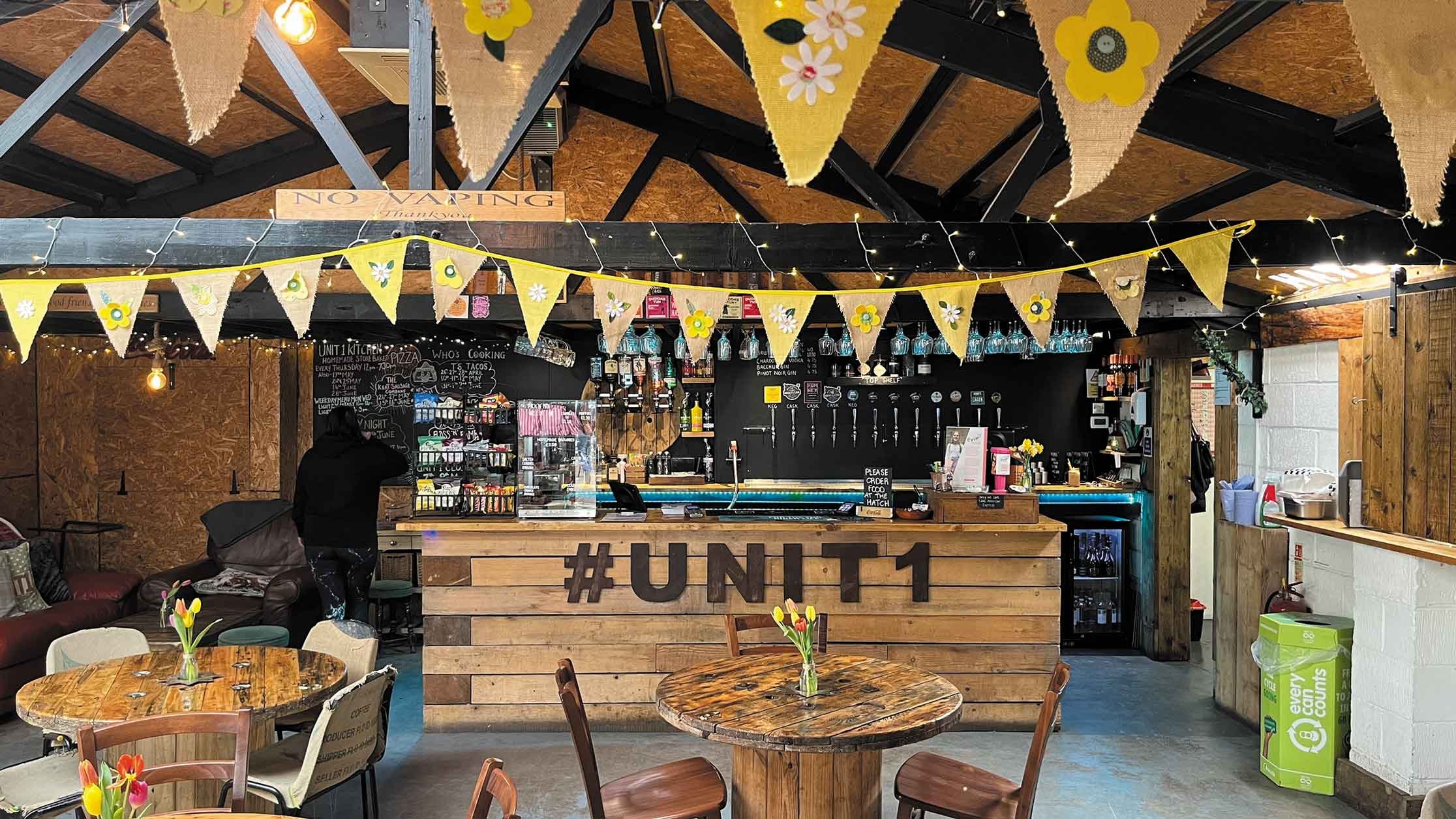Column: Zahra Barri speaks to Rochester’s Lynne Parker about funny women
Medway comedian and columnist Zahra Barri chats to Rochester’s Lynne Parker about the power of humour and Jackie Weaver’s authority
Ask me who my favourite comedians are, they are all women. Sarah Silverman. Joan Rivers. Nikki Glazer. Amy Schumer. Rachael Feinstein. Katharine Ryan. Sara Pascoe. Jo Brand. While I enjoy Jerry Seinfeld, Jim Jefferies, Bill Burr, Ricky Gervais and Frankie Boyle, I don’t seek out male comedy.
When I meet a male stand-up comedian I find funny, I say things to him like “I don’t normally find male comedians funny, but you were really good”. (This is what most female comedians are told after smashing a gig by an audience member FYI).
Women, to me, are funnier. It makes sense. Any demographic that has been marginalised, traumatised or stigmatised over the years often have an innate sense of humour. This is because comedy is all about struggle. And us women have a lot of material to work with. For example, we can talk about how it is statistically more likely that our husbands will kill us, how upset we are that we can’t fit into a size-eight dress even after food poisoning and how hard it is to find an excuse as to why we’ve got a huge red burn mark on our upper lip that doesn’t allude to us having the same testosterone levels as a 14-year-old Greek boy. I’m not saying I’m hairy, but if my puberty story was an episode on The Wonder Years it would be called The Un-Hirsute of Happiness.
In short, comedy is pain. No one wants to see a comedian talk about how great their life is. Except if you’re into Kevin Hart and enjoy hearing him talk about how his house is so big, he can’t find his family in it (actual material).
Women are funnier because we’ve been through a lot more adversity in 28 days than a man has in 28 years. And don’t even get me started on UTIs and HPV.
Female comedians have come a long way (and it’s thanks to people like Funny Women’s Lynne Parker)! We’ve not only redefined what stand-up comedians talk about on stage, but we’ve redefined the genre…
If you’ve been reading my articles the last few months, you will see that I’m a huge fan of female comedy. So it would be utterly ludicrous to not interview the Rochester-based Lynne Parker, who champions funny women so much she called her company just that: Funny Women (@funny_women). She did it more than 20 years ago, when being a funny woman evoked the rather irritating yet persistent question from all journalists interviewing them: Are women funny? (Sidenote - people still ask this question).
I met up with Lynne in her offices on Rochester High Street, where I not only thanked her profusely for her services to eradicate sexism in comedy but also discussed her years working with very Funny Women!
Lynne Parker with Jo Brand
What inspired you to create funny women?
Back at the end of the last century when I asked a misogynist comedy promoter why he never booked any women, he told me that ‘women aren’t funny’ and ‘there are no funny women’. I was working as a publicist for a comedy club at the time and my knee-jerk reaction was to prove the promoter wrong. Over 20 years on and the rest is history. I am now an award-winning creative producer best known as the founder of Funny Women.
How did you get it all started?
After my encounter with the comedy promoter, I set out to create Funny Women and it’s gone on to become a leading comedy community, empowering women to find their voice through performing, writing and creating narratives with humour. At the time I had already forged a successful career in journalism, public relations and marketing, but I had always loved comedy and found my calling. Funny Women was ‘born’ at the tail end of 2002.
I launched the Funny Women Awards in 2003 with the help of Babycham, the first of many sponsors, and these have become the recognised industry showcase for new female and non-binary performers, writers and creators supporting talent at the very beginning of their comedy careers.
Many of our alumni have gone on to become ‘household names’ as performers, writers and broadcasters, including Katherine Ryan, Sara Pascoe, Zoe Lyons, Susan Calman, Sarah Millican, Bridget Christie, Kerry Goldliman, London Hughes, Gemma Whelan, Sooz Kempner, Rachel Parris, Jayde Adams, Desiree Burch, Sindhu Vee and many more.
What has been your biggest challenge with Funny Women?
The constant challenge is about meeting expectations and finding the funding and sponsorship to support our awards and our ongoing outreach programmes. This is my ‘day job’ and not some weird hobby, so I spend far too much time explaining and justifying what I do and how we need money to keep it all going.
After the pressures of the pandemic, there is a real crisis in arts funding. Despite this, we still support so many women on their journey into the competitive world of entertainment and comedy and I’m very proud of this achievement. Funny Women is my life’s work and the annual Funny Women Awards are central to the continual growth of our creative community.
What’s your favourite part of your job?
I always love the excitement and buzz of the Funny Women Awards gala final – this year it takes place on Thursday 28th September back at the Bloomsbury Theatre in London, where we’ve been for the last two years. Seeing how the careers of our winners and finalists develop is always amazing and when this is openly acknowledged I feel very proud.
Taking our ethos into the workplace with our sister brand HERlarious has also been groundbreaking. This grew out of a campaign to get advertising agencies to employ more female creatives back in 2018 and has now become the basis of our work in the corporate sector.
I believe that everybody is entitled to have ‘fun at work’ and I know that humour is both ageless and central to women’s lives. It’s an important coping mechanism and women use their innate sense of humour intuitively from soothing their children to mediating relationships in the workplace. Humour is a powerful way of communicating within the community, a process that is reflected by a broad range of women in comedy regardless of age, ethnicity, ability and sexuality.
Have you ever wanted to do stand-up yourself?
I took Logan Murray’s course as I wanted to perform as a way of celebrating my 50th birthday. However, I’m better at coaching comedy than performing it and enjoy collaborating with comedians, writers and creators.
I love my role ‘behind the scenes’ and am proud to be the catalyst for so many comedy careers with my Stand Up to Stand Out comedy workshops and the Comedy Crash Courses. I’m more comfortable in the role of facilitating a workshop, hosting a panel discussion or speaking in public about my comedy journey. I’ve done two TEDx talks in London and Bonn and regularly guest on radio and podcasts.
What do you find funny?
I don’t really have a particular style of comedy that I gravitate towards. I like everything from Monty Python to Have I Got News for You. I may not always laugh out loud, which is the sad part about working in comedy because you become immune by observing everything academically. I have to remind myself to go with the flow and be in the moment.
I’m not a prude, but I don’t like comedy that deliberately sets out to shock people into laughing. I prefer cleverly crafted storytelling to ‘boom-tish’ one-liners and enjoy improv and sketch comedy, too.
What attributes does it take to be a successful female comedian?
Ambition, resilience, dedication, creativity, talent – and in that order, too! Don’t let aggravation exceed your talent – be self-sufficient, resourceful and listen to what people say to you. You don’t have to agree with them and please don’t take criticism personally. Remember that everybody, just everybody, in comedy has an opinion!
If you could change one thing about the comedy industry, what would it be?
That’s easy – gender parity. I’ve personally seen thousands of women performing and creating comedy over the last 20 years, so please don’t tell me there aren’t any! Look what happened last time! There should be an equal ratio of men and women on every comedy bill and panel show and in writers’ rooms.
You also run a podcast – tell us about it.
I have recorded 32 episodes of my podcast HOW TO HAVE FUN AT WORK, where I bring together my two passions: comedy and business. I have interviewed some of my favourite businesspeople and comedians about topics as wide-ranging as motherhood and menopause to writing a book or finding the confidence to speak in public.
Who has been your favourite guest and why?
A favourite moment, rather than a guest (because they are all great), was getting Jackie Weaver on the podcast. She had become a Zoom sensation after a video of her chairing the Handsforth Parish Council meeting went viral. We talked about having authority and the impact of being a strong woman in public life. Priceless.
And finally the most important question of all: Are Women Funny?
Yes, women are very funny! You’ve only got to listen to a group of women taking to each other to realise this – we laugh with each other, not at each other. When we get out there and share it, the sky’s the limit, epitomised by so many of our Funny Women alumni.
INFO: www.funnywomen.com
ABOUT ZAHRA BARRI
Zahra Barri is an Egyptian/Irish writer and stand up comedian who loves writing and talking about taboo subjects in a light-hearted and funny style.
She has featured on Radio 4, Radio 4 Extra, Radio 2, BBC Asian Network and BBC Period Dramas online. Her debut Novel won Runner Up for the Comedy Women In Print Unpublished prize 2020. She is currently doing a PhD in Creative Writing and moved to Rochester over Lockdown.
She has grown up in Saudi Arabia, but also Bracknell. Due to her mixed heritage background, she has attended both Muslim schools in Saudi and Catholic schools in the UK which gives her comedy a unique perspective.










